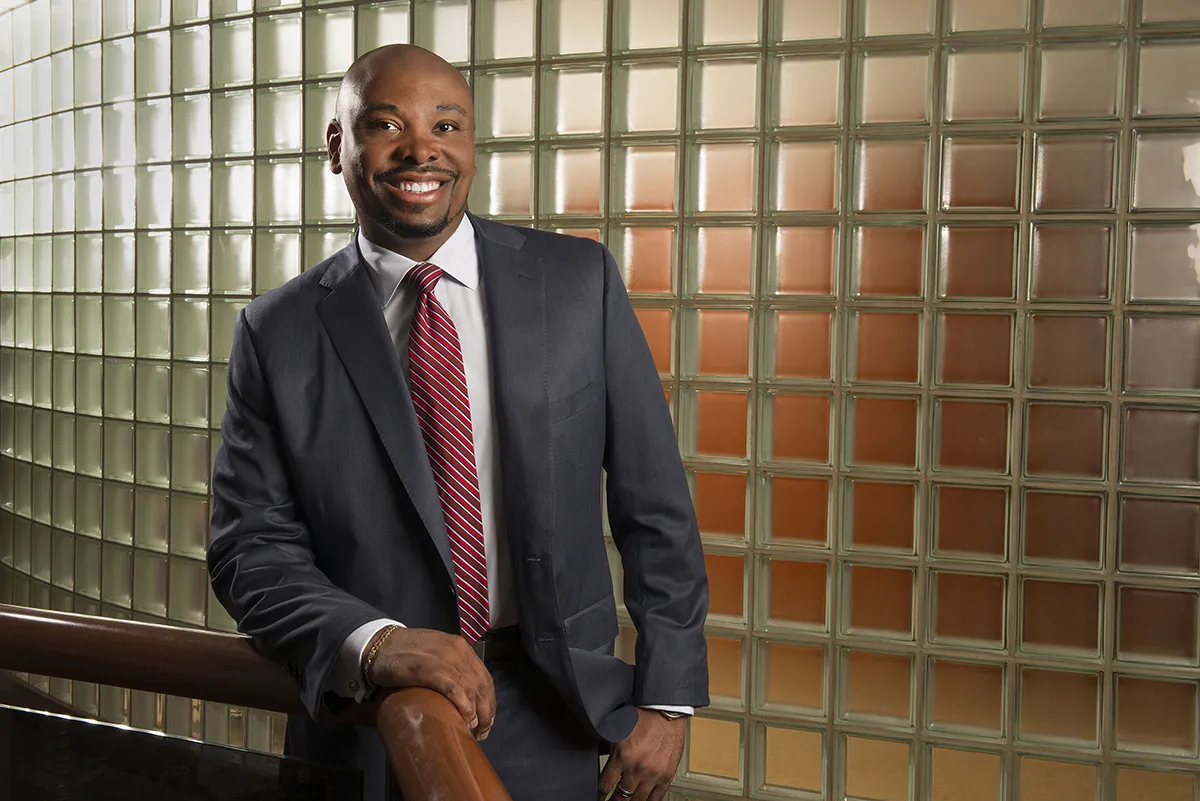James E. Taylor, ’00, PhD, remembers the time a few summers ago when an elderly white couple stopped to ask him a question while he was watering his front lawn. “As they walked by,” Taylor recalled,“they asked me if I worked for the people who owned the house.”
He also remembers the time a waiter at a high-end restaurant brought the bill before his meal was served — the implication, of course, being that he couldn’t afford to dine at such an extravagant expense. And he recounts several times being mistaken for a professional athlete. “I drive a sportscar. As I get out of the car, on occasion I will hear people whisper,‘Is that a Pittsburgh Steeler?’ The insinuation is that if I can afford to drive the car that I own and look as I do, I must be an athlete.”
Taylor isn’t an athlete. He’s senior vice president at the University of Pittsburgh Medical Center (UPMC), a $21 billion, nonprofit health care provider and insurer, and the largest nongovernment employer in the state of Pennsylvania. Diversity and inclusion are some of the corporate functions for which he is responsible. An applied psychology major at IC, he’s made it his life’s work to bring attention to and try to help undo not only systemic racism but the microaggressions — the off-handed, offensive statements or actions like those described above — that help to perpetuate it in American life and institutions.
